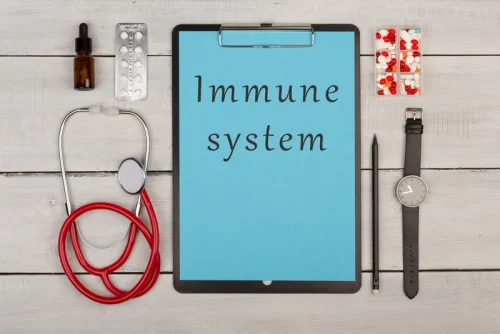
An individual’s immediate, unpremeditated interpretations of events are referred to as automatic thoughts. Automatic thoughts shape both the individual’s emotions and their actions in response to events. For example, a friend may cross you in the hallway and not say hello to you. If you were to have an automatic thought of “he hates me,” or “I have done something to anger him,” it is likely to impact your mood and cause you to feel upset and also to behave in an avoidant manner when you see him next. On the other hand, if you had the automatic thought, “he is in a hurry,” you would not be too concerned, and you would not be avoidant when you were to see him next. CBT often includes out-of-session practice like self-reflection tasks, behavioral exercises, and readings.
- However, several recent studies have been done on actual clinical subjects and have also found that rational emotive behavior therapy (REBT) is often helpful (Lyons & Woods 1991).
- She desires good grades, and it would be good to have them, but it hardly makes her worthless.
- The therapist will likely ask you about your current and past physical and emotional health to gain a deeper understanding of your situation.
- Cognitive behavioral therapy (CBT) is a common type of talk therapy (psychotherapy).
What does a cognitive behavioral therapist do?

If you don’t feel comfortable with the first therapist you see, try someone else. Having a good “fit” with your therapist can help you get the most benefit from CBT. Receive prompt and attentive care, with evidence-based treatments designed to help you achieve your goals efficiently. Remember, seeking help for mental health concerns is a sign of strength, not weakness.
CBT focuses on relationships and consequences
- For instance, in treating social anxiety, a therapist might use cognitive restructuring techniques from CBT to help you challenge negative thoughts about social situations.
- A course of CBT can lead to marked benefits not only for the person in therapy but for those close to him or her.
- Patients often tell me “meditation is not for me”, “I just could not do it”, “my mind is always racing and I can’t stop it”, “I tried and failed”, but all you have to do is just keep doing it.
- It is important to learn what thoughts, feelings, and situations are contributing to maladaptive behaviors.
Other clinicians and researchers became interested and began developing CBT treatment protocols and evaluating their efficacy. Specific treatment protocols were developed for some psychiatric disorders. As behavioral strategies were incorporated, the term cognitive therapy changed to cognitive behavior therapy. Today CBT is the most extensively researched of all psychotherapies with several evidence-based treatment protocols. Research has found the CBT delivered virtually is often equally as effective, and sometimes more effective, than CBT delivered in person. For example, one review study found that online CBT reduced symptoms of anxiety and depression to the same extent or more than in person CBT.
What to expect at your first CBT appointment
For example, someone anxious in social situations may set a homework assignment to meet a friend at the pub for a drink. For instance, becoming an overly protective parent can be a behavior stemming from certain thoughts and feelings. When managing challenging feelings, it’s essential to acknowledge them, seek balance, cbt interventions for substance abuse and, if persistent, examine underlying thoughts that might reinforce them. The idea is that the client identifies their unhelpful beliefs and then proves them wrong. Situated at the top of the triangle, thoughts serve as the cognitive foundation. Research indicates that individuals produce thousands of thoughts daily.

Online CBT was also effective in treating post-traumatic stress disorder, panic disorder, and specific phobia. Given that online therapy removes certain barriers, such as travel time or childcare, it’s a strong option to consider. Cognitive behavioral therapy (CBT) is a common type of talk therapy (psychotherapy). You work with a mental health counselor (psychotherapist or therapist) in a structured way, attending a limited number of sessions. CBT helps you become aware of inaccurate or negative thinking so you can view challenging situations more clearly and respond to them in a more effective way. It’s been shown to be effective for treating depression, anxiety disorders, eating disorders, substance abuse, and even some physical health conditions like chronic pain.
Practical Tools for Leading a More Fulfilled Life
ACT Behavioral Therapy: A Transformative Approach to Mental Health and Well-being
